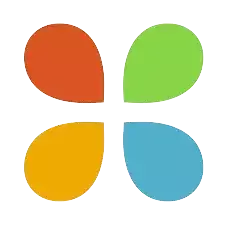Dr Ramesh Nelluri treats patients with Oxygen ‘plants’ in Narasaraopet
Studying in Government schools with dedicated teachers pushed him to focus on environment conservation

NARASARAOPETA: Meet Dr. Ramesh Nelluri of Andhra Pradesh's Narasaraopeta district, a neurologist by profession but also known as a 'plant doctor' who serves hundreds of patients for free but charges a 'unique fee'.
The 40-year-old doctor, who manages a busy hospital in Narasaraopet, gives oxygen to his patients by laying tubes and gives back to society by planting trees to increase green cover and provide a more healthy environment for future generations.
On one Sunday every month, Dr. Ramesh Nelluri of Pamidipadu, Andhra Pradesh, treats hundreds of patients in neighbouring villages. He travels to neighbouring villages and heals hundreds of patients for free, with one condition: each of them must plant a tree.
He and his team from Nelluri Super-Speciality Hospital distribute saplings to each patient and encourage them to care after these plants. Every month, his patients are requested to send images of the plants they have planted. 'वृक्षों रक्षति रक्षित' is also mentioned in his patient file.
Born in a middle class agricultural family
“My father, Nagaiah Nelluri, is a farmer, and I were born into a middle-class household. We are a family of five, with three sisters and two brothers. My parents raised us with much hardship. My sisters studied in class seven because there were no upper secondary schools in our village, as well as financial restraints in our household. Things improved after my older brother finished his engineering degree and moved to the United States of America(USA).”
First doctor from his remote village Pamidipadu
Dr. Ramesh Nelluri's elder brother, Nelluri Srinivas Rao, was the first person from their hamlet Pamidipadu to travel to the United States, and he was the first person in their town to become a doctor.
“My father, like any other parent in a middle-class family, wanted my brother to be an engineer and me to be a doctor. I completed my MBBS at Nepal's College of Medical Sciences (COMS), MD General Medicine at Narayana Medical College in Nellore, and DNB in Neurology in Lalitha Hospital in Guntur. Later, I co-founded my own hospital in Narasaraopeta with my dermatologist wife, Dr. Anusha.”
His father's philanthropic nature instilled a service motto in him
“My father, Nagaiah Nelluri, always donated to charity and the development of our government schools with whatever little he had, instilling in me the value of service. My father's philanthropic nature pushed me to give back to society with whatever little we had.”
Studying in Government schools with dedicated teachers pushed him to focus on environment conservation
“All my siblings went to government schools, and my brother attended St. Joseph High School in Rentachintala as there was no high school in our village during that time and I attended St. Mary's High School in Pedaparimi, Thulluru Mandal, Guntur District, where we had two favourite teachers, the correspondent Fr. K. B. Satyanda and the principal Doupati Jojaiah, who instilled much discipline in us. The discipline and routine we were subjected to were extremely useful in teaching us love for the environment, ethics and discipline. We cleaned our school grounds, school and watered trees daily, which contributed to our overall personality development. Everything we've accomplished thus far is due to the efforts of teachers and parents.”
A plant as a return present at a birthday party led him to distribution of plants
“I always wanted to do something for the environment and serve the community, but the idea of distributing plants to my patients came to me when I visited my friend Dr. Harishchandra Reddy, a psychiatrist in Hyderabad, who was giving away plants for his daughter's birthday. This was one of the incidents that prompted me to distribute plants to my patients and encourage them to take care of them. “The primary requirement for receiving the plant is that the patients provide their Watsapp number so that they can share images of their plants on a regular basis.
The patients are then encouraged to take effective care of these plants and we ask them to send pictures of the plants they have sown every month. If they send the images on a regular basis, they receive a 30 percent discount on their hospital bill if they ever require admission, as well as a 10 percent discount at our pharmacy.”
Treated over 3,000 patients for free, distributed over 3,000 plants in last 2.5 years
“On one Sunday every month, we visit surrounding villages and treat hundreds of patients for free, with one condition: each patient must plant one tree, for which we offer the new plants. Over the last 2.5 years, we have staged 25 medical camps, treated 3,000 people in nearby villages, and distributed over 3,000 plants.”
Best days of my life are when my patients return with the fruits from the trees they planted
“We often visit villages and distribute outdoor plants, because there are still many open spaces in villages for planting trees, so we support rural plantings. We also provide seedlings of mango, guava and other fruit plants. The best days in my life are when my patients come to me with the fruits of the trees they planted with my seedlings. Recently, one of the patients brought me guavas from the plant he planted after we gave it to him. I'm also thinking about propagating neem plants as they're known for their medicinal value, but the cultivation of these plants is uncertain due to their large space requirements and the care required.”
We are mere guests on this planet
“I come from a remote village and have always believed that public transportation benefits the environment. Even today, I ride the RTC buses because it's good for the environment and saves fuel and energy. With the threat of climate change, we should all gradually switch to public transportation as much as possible to improve the future and the environment. As the saying goes, we're only guests on this planet. Therefore, we should be courteous to it and improve it if possible instead of destroying it. Plant more trees, use public transportation and protect the environment for future generations.”



